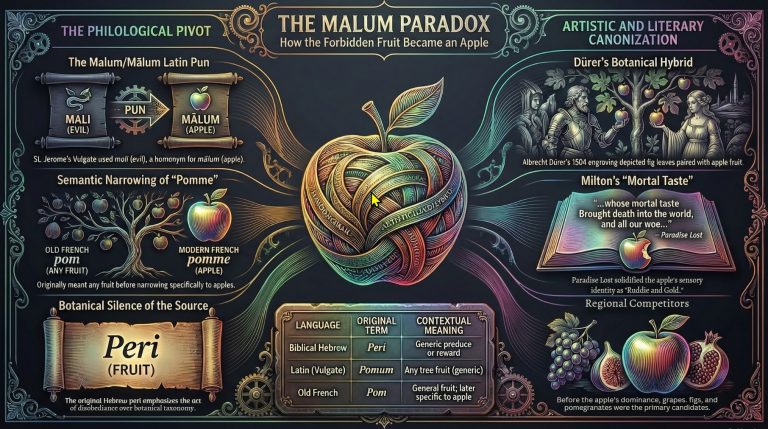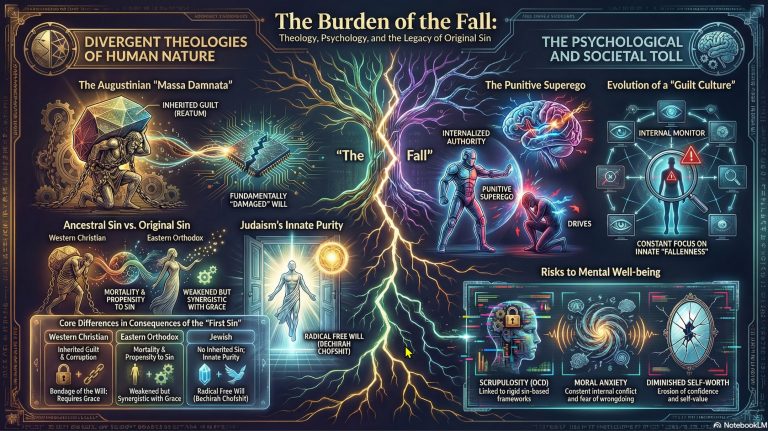
Jewish Ideology and the Principle of Echad
Throughout the annals of religious discourse, supplicatory prayer has held a venerable and complex position within many faith traditions, particularly within Judaism. This paper interrogates the ideological underpinnings of Jewish thought concerning prayer, especially as it intersects with the principle of Echad—the divine singularity that is central to Judaic monotheism. In doing so, it reveals an intriguing paradox: while prayers of supplication have long been regarded as expressions of humility and dependence on God, they can also be construed as acts imbued with hubris.
1) By imploring God to alter His will in favour of individual requests, supplicatory prayer risks undermining the foundational belief in God’s immutable Unity.
2) It introduces heretical thinking or theological division that challenges and fractures the cohesive essence of divinity itself, compelling a re-evaluation of how prayer functions within Jewish religious life and invites deeper reflection on the relationship between human agency and divine constancy.
3) Due to God’s immutable nature and the timelessness of his existence, prayers that beseech God to change His mind implies an openness to change that contradicts God’s immutable nature. This act is inherently problematic because it suggests that human desires could potentially disrupt the perfect unity represented by Echad.
4) Rabbis have long emphasized the importance of aligning human will with divine will rather than attempting to alter it via petitioning for specific outcomes. Prayer serves as a vital conduit for expressing devotion and humility within the Jewish community, true reverence is expressed through prayers that reflect acceptance and praise of God’s eternal nature without attempting to alter it. By imploring God to change His mind, humans position themselves as possessing greater insight or wisdom than God’s omniscience and eternal constancy.
Consequently, this ideological framework positions true prayer as an exercise in submitting to God’s eternal constancy rather than questioning it. Supplications made from a stance of humility affirm this unity by celebrating God’s omnipotence without seeking personal intervention or alteration in His divine plan. Thus, recognizing the potential theological dissonance created by ill-intentioned or misguided supplicatory prayers encourages deeper contemplation on how best to harmonize human agency with divine singularity in ways that respect and uphold the indivisible nature of Echad.
Clarifications and References
Supplicatory Prayer as Potential Hubris
The idea that supplicatory prayer could be seen as an act of hubris stems from several theological and philosophical considerations:
1. Questioning Divine Wisdom
Supplicatory prayer might imply that the current state of affairs, as ordained by God, is somehow imperfect or in need of change. This could be seen as questioning God’s wisdom and perfect judgment.
Reference: Rabbi Joseph B. Soloveitchik, in his work ‘The Lonely Man of Faith’, discusses this tension: “The person of faith, in his moments of spiritual elation and self-elevation, finds himself in a paradoxical situation. On the one hand, he is aware of his election and chosenness; on the other hand, he realizes his own insignificance and incompetence vis-à-vis God.” [1]
2. Presumption of Knowledge
By making specific requests to God, one might be presuming to know better than God what is needed or what should happen.
Reference: The medieval Jewish philosopher Maimonides addresses this in his ‘Guide for the Perplexed’:
“The error of the ignorant goes so far as to think that God’s knowledge can be compared to our knowledge… Each organism acts according to its own nature, and God’s knowledge of that nature does not change it.” [2]
3. Anthropomorphizing God
Supplicatory prayer might anthropomorphize God by implying that God can be influenced or persuaded by human requests, potentially diminishing the concept of God’s unchanging nature.
Reference: Rabbi Abraham Joshua Heschel, in his book ‘Man’s Quest for God’ writes:
“Prayer is not a stratagem for occasional use, a refuge to resort to now and then. It is rather like an established residence for the innermost self… Prayer is not an old woman’s idle amusement. Properly understood and applied, it is the most potent instrument of action.” [3]
While Heschel defends prayer, his metaphor of prayer as an “instrument of action” highlights the tension with seeing God as unchanging.
4. Misunderstanding Divine Providence
Asking God to change things might suggest a misunderstanding of divine providence, implying that God’s original plan was somehow lacking.
Reference: Rabbi Aryeh Kaplan, in his commentary on ‘Sefer Yetzirah’, notes:
“God’s providence extends to the most minute detail of creation… Nothing occurs by chance, but everything is the result of God’s will.” [4]
It’s crucial to note that while these perspectives exist within Jewish thought, they are balanced by other viewpoints that see supplicatory prayer as a valid and important practice. Many Jewish thinkers argue that proper prayer, even when petitionary, reinforces one’s relationship with and faith in God rather than challenging divine wisdom.
References:
1. Soloveitchik, J. B. (1965). The Lonely Man of Faith. Tradition: A Journal of Orthodox Jewish Thought, 7(2), 5-67.
2. Maimonides. (12th century). Guide for the Perplexed. (M. Friedländer, Trans., 1904). Book III, Chapter 20.
3. Heschel, A. J. (1954). Man’s Quest for God: Studies in Prayer and Symbolism. New York: Charles Scribner’s Sons.
4. Kaplan, A. (1990). Sefer Yetzirah: The Book of Creation in Theory and Practice. York Beach, ME: Samuel Weiser.
Theological Responses to the Tension of Supplicatory Prayer
Jewish thinkers have proposed various approaches to reconcile the practice of supplicatory prayer with the concept of God’s unity (Echad) and perfection. Here’s an expanded look at these theological responses:
1. Prayer as Self-Reflection and Transformation
Many Jewish thinkers view prayer not as an attempt to change God’s will, but as a means of changing oneself.
Reference: Rabbi Abraham Isaac Kook, in ‘Olat Raayah’, writes:
“Prayer is not a request for God to change His will. It is a process of self-refinement in which we rise to the level where we become worthy of blessing.” [1]
Similarly, Martin Buber in ‘I and Thou’ suggests:
“The purpose of prayer is not to make our will done in heaven, but to make God’s will done on earth.” [2]
2. Prayer as Relationship and Connection
This perspective emphasizes prayer as a means of fostering a relationship with the Divine, rather than primarily asking for things.
Reference: Rabbi Joseph Soloveitchik, in ‘Worship of the Heart’, explains:
“The basic function of prayer is not its practical consequences but the metaphysical formation of a fellowship consisting of God and man.” [3]
3. Mystical Interpretations
Kabbalistic thought often sees prayer as a means of unifying divine aspects within creation.
Reference: Gershom Scholem, in ‘Major Trends in Jewish Mysticism’, describes the Kabbalistic view:
“Prayer… is the mystery of the unification of the divine name. Every word and every letter in prayer has its secret meaning and its particular power in bringing about this unification.” [4]
4. Prayer as Fulfillment of Divine Will
Some argue that God desires our prayers, making the act of prayer itself a fullfillment of God’s will.
Reference: The Talmud (Yevamot 64a) states:
“Why were our foremothers barren? Because the Holy One, blessed be He, longs to hear the prayer of the righteous.” [5]
5. Prayer as Acknowledgment of Dependence
Prayer can be seen as an act of recognizing our dependence on God, which reinforces rather than contradicts God’s unity and supremacy.
Reference: Rabbi Samson Raphael Hirsch, in his commentary on Psalms, writes:
“Prayer is not an attempt to change God’s will but to align ourselves with it by expressing our total dependence upon Him.” [6]
6. Prayer as Actualization of Potential
Some view prayer as a means of actualizing God’s blessings that are already potential in the world.
Reference: The Chassidic master, Rabbi Schneur Zalman of Liadi, in ‘Likkutei Torah’ teaches:
“Prayer does not change God’s decree, but rather reveals and brings into actuality that which was already potentially granted.” [7]
These perspectives demonstrate the rich variety of thought within Jewish tradition on the nature and purpose of prayer. They show how Jewish thinkers have grappled with reconciling the practice of supplicatory prayer with fundamental theological principles like God’s unity, perfection, and unchanging nature.
References:
1. Kook, A. I. (1985). Olat Raayah. Jerusalem: Mossad Harav Kook.
2. Buber, M. (1937). I and Thou. (R. G. Smith, Trans.). Edinburgh: T. & T. Clark.
3. Soloveitchik, J. B. (2003). Worship of the Heart: Essays on Jewish Prayer. New York: Toras HoRav Foundation.
4. Scholem, G. (1941). Major Trends in Jewish Mysticism. New York: Schocken Books.
5. The Babylonian Talmud. (n.d.). Yevamot 64a.
6. Hirsch, S. R. (1960). The Psalms: Translation and Commentary. New York: Feldheim Publishers.
7. Shneur Zalman of Liadi. (1984). Likkutei Torah. Brooklyn, NY: Kehot Publication Society.
Conclusion
These perspectives span different periods and schools of Jewish thought, from Talmudic sources to medieval philosophers, mystical traditions, and modern thinkers. They offer a range of ways to understand prayer not as an attempt to change God, but as a means of self-transformation, relationship-building, fulfilling divine will, and actualizing potential blessings. However in a world that emphasises Hubris and ‘I want’ as an operative principle, the use of supplicatory prayer in an inappropriate manner is fraught with the possibility of a reversal of intent by the supplicant. Prayer should always be mediated with true correct intent, in humility and gratitude removing hubris as a discipline and praxis.
This diversity of thought demonstrates the richness of Jewish theological discourse on prayer. It shows how thinkers have worked to reconcile the deeply ingrained practice of supplicatory prayer with sophisticated theological concepts.




